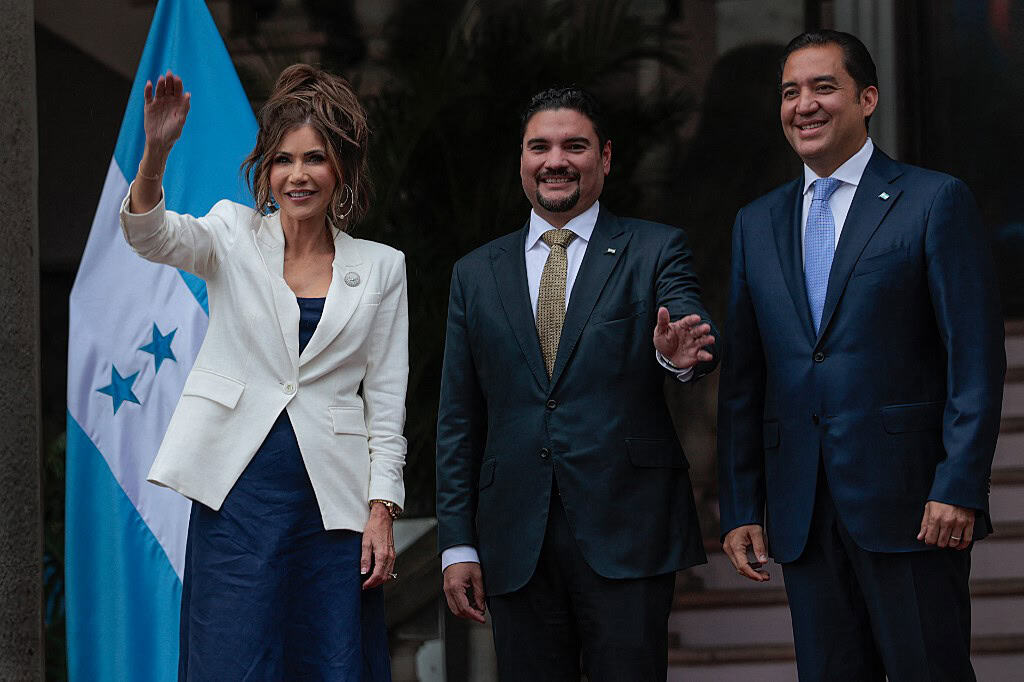The recent collaboration between the United States and Guatemala marked a significant step in border security and transnational crime fighting. On Thursday, U.S. Secretary of Homeland Security Kristi Noem signed a cooperation agreement that aims to enhance security measures through the deployment of advanced technologies, including drones. This agreement not only reflects growing concerns over transnational crime, but it also underscores the importance of international partnerships in promoting regional safety.
During her announcement in Guatemala City, Noem emphasized that this joint security alliance would enhance the sharing of information and security protocols across various touchpoints such as airports, ports, and borders. “This joint security alliance will allow us to share information […] and security protocols at our airports, ports, and borders, as well as between our intelligence agencies,” she stated, highlighting the multifaceted approach that both nations are adopting to tackle these critical issues.
Noem engaged in discussions with Guatemalan President Bernardo Arévalo and other officials on cybersecurity and the application of technologies like drone surveillance specifically targeting the dismantling of drug trafficking networks. “This is a joint security agreement that gives us an unprecedented opportunity to share information and pursue criminals,” she stated, showcasing the proactive nature of the agreement and its potential ramifications in crime prevention.
Guatemala’s Minister of the Interior, Francisco Jiménez, echoed Noem’s sentiments, emphasizing the agreement’s role in enhancing the detection of individuals connected to criminal and terrorist networks. With Guatemala acting as a transit hub for migrants from diverse parts of the globe, the deal promises to establish “joint investigations” and “information sharing” mechanisms. This cooperative framework aims to facilitate quicker actions against threats and improve overall security in both nations.
In addition to bolstering national security, Noem introduced an assistance program aimed at migrants returning to Guatemala from the U.S. This year alone, approximately 20,000 individuals have been deported, making support crucial for their reintegration. “Back in Guatemala, migrants can count on a government that supports them with housing, family care, and job training so they can secure their future, and that of their children and grandchildren,” Noem highlighted, positioning the U.S. initiative as a step towards sustainable solutions for returning migrants.
Noem also emphasized Guatemala’s potential to serve as a model for other nations grappling with similar challenges. Recognizing President Arévalo’s supportive stance, she pointed to the country as a beacon of hope in managing migration and providing adequate support for those repatriated. “This country can serve as an example to others and can lead the way in the efforts we want to make,” she noted, capturing the spirit of collaboration and innovation in addressing these pressing issues.
Furthermore, Noem’s visit included an important visit to the migrant reception center at La Aurora airport, where she observed first-hand the conditions and support systems in place for returning migrants. She also addressed the plight of unaccompanied migrant children currently in the U.S., noting that “we have already identified hundreds of them in the U.S. who were victims of trafficking.” This highlights a critical area of concern, as the Secretary explained the importance of facilitating their safe return to their families, along with opportunities for education and job training to ensure their future well-being.
Prior to her visit to Guatemala, Noem had already visited Panama, Costa Rica, and Honduras, where she discussed similar security and migration policies, reflecting a broader regional strategy aimed at fostering cooperative immigration policies throughout Central America. This multi-country approach indicates a long-term commitment to strengthening security alliances and addressing the root causes of migration and transnational crime.


